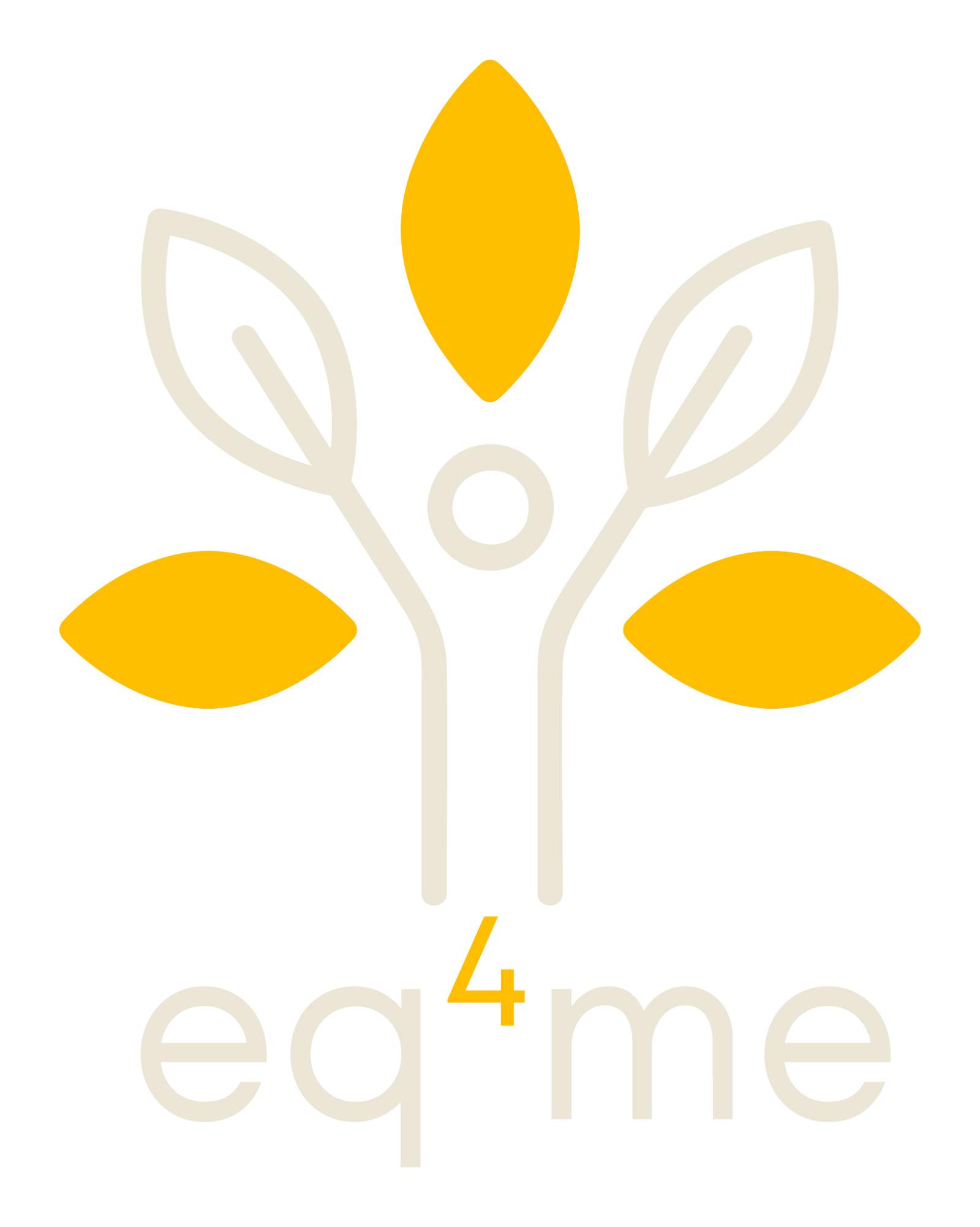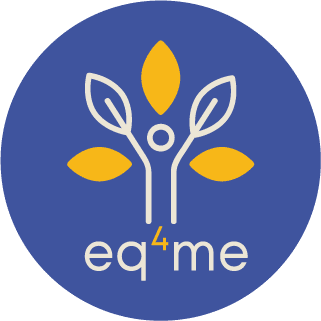So often when we ask our friends or colleagues how they are doing they will either tell us everything is ok or if not, they will tell us how they are having problems with a friend, family member, or someone at work. Occasionally they will tell us how they are struggling with a project or their business. Its invariably the same two things, their relationships or their work.
This is of course understandable. We spend our lives in relationships with people, and we spend our lives trying to make a living. The question is, how do you build relationships that are healthy, reciprocal and long lasting to ensure you and the people around you are happy most of the time?
Become Self-Aware:
To be self-aware you need to become conscious of the way you respond to internal and external stimuli. How do you respond to things you see and hear? How do you respond to your own thoughts, which become feelings which determine your behaviour?
People will respond to you based on how you express yourself through your body language, your tone of voice, what you say and what you don’t say. If you are aware of yourself in any situation you have a far better chance of managing your behaviour and therefore managing the outcome of a discussion, a situation or an activity you are engaged in.
If you understand why you feel certain emotions and can describe them in the moment you will have begun the practice of consciously, intelligently being aware of your emotions and will be able to learn how to give yourself the lag time you need to respond to a person or a situation in a measured, friendly and understanding way.
Because our emotions are essentially impulses to act, it is sometimes not easy to pause, be aware of our thoughts and feelings, and then respond in an empathetic way. This is why it is so important to awaken your consciousness and take control of your thoughts, feelings and actions.
Reflecting on how you responded to situations after the fact is a good way of examining and then adjusting your mindset for the next time you experience a similar thing. You will be amazed at how your awareness of self can develop through the practice of consciousness and reflection. The key to success is however practice. The more you do it the better you will become and the more you do it the better your relationships will become.
Build Trust First:
According to Dr Amy Cuddy, a social psychologist at Harvard Business school, people make two quick judgements upon meeting someone for the first time by asking two questions:
“Can I trust this person?”
“Can I respect this person’s capabilities?”
According to Dr. Cuddy, trust is however a far more important factor. As Dr Cuddy says, “A warm, trustworthy person who is also strong, elicits admiration, but only after you’ve achieved trust does your strength become a gift rather than a threat.” She adds, “If someone you are trying to influence doesn’t trust you, you’re not going to get very far; in fact, you might even elicit suspicion, because you come across as manipulative.”
If we employ a measure of curiosity and empathy upfront upon meeting someone by asking a few easy open ended questions to elicit more information, the person will feel that we are interested in them, and the conversation is likely to become a pleasant two way experience.
As we develop our relationships with the people in our life, whether they are new friends, old friends, family members or colleagues, the way to build ongoing trust is to ensure we are reliable and consistent in both delivering on our promises and remaining relatively predictable in the way we deal with people.
Accept people For Who they Are:
All of us have ingrained prejudice and this is often as a result of the environment we grew up in and the way we were brought up. This “world view” that we have developed as a result of our past does not however have to remain our “world view”. Indeed we live in a world where races, languages, religion and cultures continually collide in an endless dance of interaction, communication and collaboration.
How well you release yourself of preconceived prejudices will often determine how successful your relationships with people outside your immediate orbit are. When we get past our skin deep differences we have the ability to examine, understand and benefit from our innate differences like personality type and intelligence type.
You may, for example, be a predominantly left brain thinker who prefers receiving information and communicating in numbers, data and facts. Your spouse or significant other might be a right brain creative thinker that enjoys seeing the big picture and solving problems in alternative ways. By accepting people for who they are rather than thinking people should think like you do, is incredibly empowering and leads to far more successful relationships and collaborations. Add a healthy dose of curiosity and the world will become a far more exciting place for you, full of interesting and different personalities who all have a place at the table.
Some people have a predilection for interpersonal effectiveness and some people are naturally more wired to be loners. Neither are wrong and neither are right, they are just different. And so it is with people who have higher spatial intelligence versus people who have higher logical-mathematical intelligence. If you see people’s differences as interesting and exciting you are far more likely to develop interesting and exciting relationships based on mutual respect and understanding.
Manage Your Emotions:
I often encourage my students to be happy on purpose so that things go a lot smoother for them. There is a good reason for this because negative emotions like anger, sadness, fear and shame produce inhibiting chemicals in the brain which slow down the electrical transmission of messages between brain cells and thus inhibit our ability to think clearly, learn better and solve problems easier.
When we are in a happy state our brain produces neurotransmitters, the “good fuel chemicals” that speed up the transmission of messages between brain cells which allow us to think more clearly, engaging both our critical and creative capacities more efficiently.
When you are in a happy state it is like a contagion, people around you feed off your positive energy and conversations become more vital, vibrant and hopeful.
Dr. Sonja Lyubomirsky, a psychologist at the University of California has discovered some fascinating things about happiness that could change your life and therefore your relationships. One of her main discoveries is that we all have a happiness “set point”. When extremely positive or negative events happen in our lives, such as buying a new car or losing a job, these events temporarily increase or decrease our happiness, but we eventually drift back to our own set point.
Dr. Lyubomirsky has found that this genetic “set point”” accounts for 50% of our happiness, our life circumstances affect about 10% of our happiness and a whopping 40% is entirely up to us.
Learn How to Criticise and Be Criticised:
We all live in a world of endless feedback and criticism. Indeed, if you are a manager or a parent, you will find that constructive criticism is often job number one because if it is delivered well it can lead to positive changes in performance and behaviour.
The problem is when criticism is delivered harshly. Dr John Gottman, the famous American psychologist, says that criticising your partner is different from offering a critique or voicing a complaint that can be worked on. A critique or complaint is about a specific issue, whereas harsh criticism is an ad hominem attack. It is an attack on your partner, child or colleague which goes to the core of their character. In effect, when we are criticising someone harshly, we are dismantling their whole being.
Indeed, Dr. Gottman has shown that couples who engage in harsh criticism of one another often become contemptuous, then defensive and then retreat into a world of silence by stonewalling their “opponent”. When this happens it is a sign that the relationship is in serious trouble.
If we start out by dealing with complaints as something that can be worked on, or return to this state of mind consciously, we can learn to become artful critics rather than blaming someone for what they have done. When someone feels that are not being blamed, are recognised for what they have done well, and are given an opportunity to improve, they are far more likely to listen and not get defensive.
Delivering constructive criticism is an art and if you want to build happy, healthy relationships with those around you it is something worth learning, practicing and mastering. Receiving criticism by being curious about the other person’s perspective and being interested in what you can learn from them is just as important as delivering constructive feedback.
Bringing it all Together:
If you want to build better relationships, begin the process of becoming aware of your thoughts, feelings and actions and the thoughts, feelings and actions of others and you will have begun the process of enhancing and developing your emotional intelligence on purpose. Add to this, building trust and accepting people for who they are, and you will move your relationships to another level of understanding. Learn how to manage your emotions and give and receive feedback in a constructive way and I assure you, you will begin to build healthy, valuable relationships that will make you feel happy and more fulfilled.
This is of course understandable. We spend our lives in relationships with people, and we spend our lives trying to make a living. The question is, how do you build relationships that are healthy, reciprocal and long lasting to ensure you and the people around you are happy most of the time?
Become Self-Aware:
To be self-aware you need to become conscious of the way you respond to internal and external stimuli. How do you respond to things you see and hear? How do you respond to your own thoughts, which become feelings which determine your behaviour?
People will respond to you based on how you express yourself through your body language, your tone of voice, what you say and what you don’t say. If you are aware of yourself in any situation you have a far better chance of managing your behaviour and therefore managing the outcome of a discussion, a situation or an activity you are engaged in.
If you understand why you feel certain emotions and can describe them in the moment you will have begun the practice of consciously, intelligently being aware of your emotions and will be able to learn how to give yourself the lag time you need to respond to a person or a situation in a measured, friendly and understanding way.
Because our emotions are essentially impulses to act, it is sometimes not easy to pause, be aware of our thoughts and feelings, and then respond in an empathetic way. This is why it is so important to awaken your consciousness and take control of your thoughts, feelings and actions.
Reflecting on how you responded to situations after the fact is a good way of examining and then adjusting your mindset for the next time you experience a similar thing. You will be amazed at how your awareness of self can develop through the practice of consciousness and reflection. The key to success is however practice. The more you do it the better you will become and the more you do it the better your relationships will become.
Build Trust First:
According to Dr Amy Cuddy, a social psychologist at Harvard Business school, people make two quick judgements upon meeting someone for the first time by asking two questions:
“Can I trust this person?”
“Can I respect this person’s capabilities?”
According to Dr. Cuddy, trust is however a far more important factor. As Dr Cuddy says, “A warm, trustworthy person who is also strong, elicits admiration, but only after you’ve achieved trust does your strength become a gift rather than a threat.” She adds, “If someone you are trying to influence doesn’t trust you, you’re not going to get very far; in fact, you might even elicit suspicion, because you come across as manipulative.”
If we employ a measure of curiosity and empathy upfront upon meeting someone by asking a few easy open ended questions to elicit more information, the person will feel that we are interested in them, and the conversation is likely to become a pleasant two way experience.
As we develop our relationships with the people in our life, whether they are new friends, old friends, family members or colleagues, the way to build ongoing trust is to ensure we are reliable and consistent in both delivering on our promises and remaining relatively predictable in the way we deal with people.
Accept people For Who they Are:
All of us have ingrained prejudice and this is often as a result of the environment we grew up in and the way we were brought up. This “world view” that we have developed as a result of our past does not however have to remain our “world view”. Indeed we live in a world where races, languages, religion and cultures continually collide in an endless dance of interaction, communication and collaboration.
How well you release yourself of preconceived prejudices will often determine how successful your relationships with people outside your immediate orbit are. When we get past our skin deep differences we have the ability to examine, understand and benefit from our innate differences like personality type and intelligence type.
You may, for example, be a predominantly left brain thinker who prefers receiving information and communicating in numbers, data and facts. Your spouse or significant other might be a right brain creative thinker that enjoys seeing the big picture and solving problems in alternative ways. By accepting people for who they are rather than thinking people should think like you do, is incredibly empowering and leads to far more successful relationships and collaborations. Add a healthy dose of curiosity and the world will become a far more exciting place for you, full of interesting and different personalities who all have a place at the table.
Some people have a predilection for interpersonal effectiveness and some people are naturally more wired to be loners. Neither are wrong and neither are right, they are just different. And so it is with people who have higher spatial intelligence versus people who have higher logical-mathematical intelligence. If you see people’s differences as interesting and exciting you are far more likely to develop interesting and exciting relationships based on mutual respect and understanding.
Manage Your Emotions:
I often encourage my students to be happy on purpose so that things go a lot smoother for them. There is a good reason for this because negative emotions like anger, sadness, fear and shame produce inhibiting chemicals in the brain which slow down the electrical transmission of messages between brain cells and thus inhibit our ability to think clearly, learn better and solve problems easier.
When we are in a happy state our brain produces neurotransmitters, the “good fuel chemicals” that speed up the transmission of messages between brain cells which allow us to think more clearly, engaging both our critical and creative capacities more efficiently.
When you are in a happy state it is like a contagion, people around you feed off your positive energy and conversations become more vital, vibrant and hopeful.
Dr. Sonja Lyubomirsky, a psychologist at the University of California has discovered some fascinating things about happiness that could change your life and therefore your relationships. One of her main discoveries is that we all have a happiness “set point”. When extremely positive or negative events happen in our lives, such as buying a new car or losing a job, these events temporarily increase or decrease our happiness, but we eventually drift back to our own set point.
Dr. Lyubomirsky has found that this genetic “set point”” accounts for 50% of our happiness, our life circumstances affect about 10% of our happiness and a whopping 40% is entirely up to us.
Learn How to Criticise and Be Criticised:
We all live in a world of endless feedback and criticism. Indeed, if you are a manager or a parent, you will find that constructive criticism is often job number one because if it is delivered well it can lead to positive changes in performance and behaviour.
The problem is when criticism is delivered harshly. Dr John Gottman, the famous American psychologist, says that criticising your partner is different from offering a critique or voicing a complaint that can be worked on. A critique or complaint is about a specific issue, whereas harsh criticism is an ad hominem attack. It is an attack on your partner, child or colleague which goes to the core of their character. In effect, when we are criticising someone harshly, we are dismantling their whole being.
Indeed, Dr. Gottman has shown that couples who engage in harsh criticism of one another often become contemptuous, then defensive and then retreat into a world of silence by stonewalling their “opponent”. When this happens it is a sign that the relationship is in serious trouble.
If we start out by dealing with complaints as something that can be worked on, or return to this state of mind consciously, we can learn to become artful critics rather than blaming someone for what they have done. When someone feels that are not being blamed, are recognised for what they have done well, and are given an opportunity to improve, they are far more likely to listen and not get defensive.
Delivering constructive criticism is an art and if you want to build happy, healthy relationships with those around you it is something worth learning, practicing and mastering. Receiving criticism by being curious about the other person’s perspective and being interested in what you can learn from them is just as important as delivering constructive feedback.
Bringing it all Together:
If you want to build better relationships, begin the process of becoming aware of your thoughts, feelings and actions and the thoughts, feelings and actions of others and you will have begun the process of enhancing and developing your emotional intelligence on purpose. Add to this, building trust and accepting people for who they are, and you will move your relationships to another level of understanding. Learn how to manage your emotions and give and receive feedback in a constructive way and I assure you, you will begin to build healthy, valuable relationships that will make you feel happy and more fulfilled.




